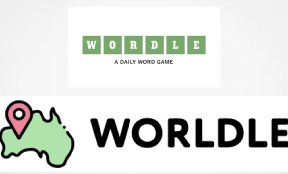A legal dispute has erupted between the word game Wordle and the geography game Worldle, centering on the similarity of their names. Wordle, which was developed by Josh Wardle in 2021 and later acquired by the New York Times in 2022 for a substantial sum, has gained immense popularity. In this game, players have six attempts to guess a five-letter word.
The New York Times’ legal filing emphasizes that Worldle’s name, appearance, and commercial impression are too similar to those of Wordle. This argument is grounded in trademark law, which protects brands from competitors that could cause consumer confusion. The United States Patent and Trademark Office (USPTO) supports this perspective, stating that trademarks don’t need to be identical to be confusingly similar. If consumers are likely to believe that the goods or services come from the same source due to similar trademarks, this constitutes a “likelihood of confusion,” which is a common reason for refusing trademark registration.
Despite the ongoing legal battle, McDonald points out that his game has a much smaller user base compared to Wordle. Worldle, which does not have an app and can only be played on a web browser, attracts roughly 100,000 monthly players, whereas Wordle boasts millions of users. McDonald also highlights other copycat games with distinguishable names, such as Nerdle, a math puzzle, and Yeardle, a historical event guessing game, to underscore the uniqueness of his game’s name.
Worldle, created by Kory McDonald, challenges players to identify locations based on Google Street View images. McDonald insists that his game is distinctly different from Wordle, arguing that Wordle focuses on words while Worldle focuses on geographical locations. Despite these differences, the New York Times has filed a legal complaint, asserting that Worldle’s name is too similar to Wordle’s, leading to potential confusion among users.
The outcome of this legal confrontation remains uncertain, but it highlights the importance of distinct branding in the digital marketplace. As the USPTO notes, a trademark serves as a crucial identifier for consumers, helping them distinguish between different sources of goods and services.
Source: https://retailwire.com/wordle-and-worldle-battle-over-names/




